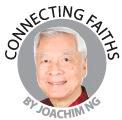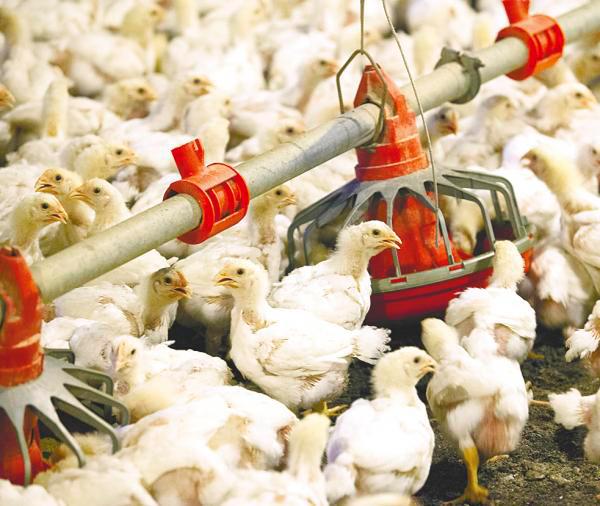EACH of the world’s 12 officially recognised religions bears a unique quality, and for Taoism, its mark of distinction is the adulation of feminine soft power.
In celebration of International Women’s Day on March 8, it is pertinent to examine the rationale for this exaltation as femininity stands in sharp contrast to the patriarchal dominance evident in all civilised societies.
Taoism, native to China, has always been overshadowed by its brother indigenous faith, Confucianism. However, perhaps because of its quiet yet influential character, it has been making waves in scientific and spiritual circles throughout Western Europe and North America where the struggle for women’s empowerment has been most prominent.
This is a religion that has no interest in converting anyone as its fundamental premise is that all come from the Tao just as we come from the mother. And, mother does not demand a show of loyalty as we are expected to be naturally filial.
A paradigm shift is necessary to understand Taoism on the matter of God’s existence. In theology school, you learn that God is the first cause responsible for bringing everything into existence but is himself an uncreated supremely regal almighty personal being.
Taoism posits the view that “being” emerges from “non-being”, and the highest or supreme reality is non-personal. This impersonal “non-being” is designated by the word Tao, and the Chinese character may be roughly translated as the principle, the way or the path.
How does Tao relate to God? If you are caught in a lightning storm at night, look at the brilliant flash of light. It suddenly appears against the backdrop of a dark sky. The darkness is Tao, the light is God. Lightning cannot exist without the sky as a backdrop but the dark sky can exist without lightning.
Look at your blank television screen – it is dark and shows nothing. Then, run a movie and see the action and colours. The dark blank screen disappears but it is still there although you are unaware of it.
When the movie is playing, your attention is fixed on the storyline, actions, words spoken, the myriad colours – that is the universe. The dark blank nothingness that disappears from your consciousness is akin to Tao; the light that enables the movie action is akin to God.
Darkness and light, the blankness and the action – Tao Te Ching, the primary Taoist scripture, informs us that “Under these two aspects, it is the same”. Tao is described as a “whirling emptiness”, the “ancestor of all things”, “the female”, “the world’s mother” and the “hidden secret”.
Which aspect came first – the blank nothingness of Tao or the personal being of God? We are informed that “Before heaven and earth were, it is already there: so still, so lonely”.
To highlight the soft-power characteristics of Tao, femininity is used as a metaphor. Remember not to take it literally. Tao is also called the “dark mare”, which is a female horse. It is “the root of heaven and earth” and “the mother of all under heaven”. Like a mother, “Tao gives birth”.
Motherly love is greatly adulated in this verse: “I have three treasures to hold and to keep: the first is motherly love. With motherly love, one can be courageous. When heaven wills to save a people, it guards them with motherly love.”
To emphasise the importance of soft power represented by femininity, the Tao Te Ching says that “to abide by the female is to be the valley of the world”. Soft power is also the pass to heaven. “In opening and closing heaven’s gate, can you be the female?”
What are the soft-power qualities that the Tao Te Ching extols? Among these qualities are to practise caring concern unconditionally: “The good I am good to them, the not good I am also good to them” and to be “soft and bending” rather than “hard and unyielding”.
Tao Te Ching uses the analogy of water to describe femininity. Despite water’s softness, “nothing can compare with it in attacking the hard and strong. Nothing can change place with it”.
Is there some impactful as well as immediately beneficial action that women can take during the week in which International Women’s Day falls? Yes, sisterhood solidarity should include not just all women in the world but also the entire feminine gender on the planet. This includes the chickens, pigs and cows that we turn into drumstick, bacon or siew yoke and beef steak. They are females. The males are called bulls, roosters and boars, which are rarely consumed as food.
Last year, an estimate by the Food and Agriculture Organisation of the United Nations placed the number of land animals bred, kept and slaughtered for consumption at 92.2 billion, a figure higher than ever before.
In 2022, Malaysians consumed an estimated 62kg of meat per person, with poultry being the highest at 50.1kg, making our country the largest consumer of chickens per capita in Asia. Two years earlier, Malaysia had already been listed internationally as a top consumer of chickens, gobbling down 1.55 million tonnes, placing it at the 16th position in the world listing.
At last estimate, there are 25 billion chickens in the world. Under industrial practices, farm animals suffer immensely cruel breeding and slaughtering conditions, with hens crammed in small wire cages that severely limit their movements, pigs reared in huge densities in small enclosures and cattle heavily overfed to fatten them before slaughter.
For economies of scale and profitability, the greatest number of animals are reared in the least amount of space.
World peace advocate Tiffany Liu wrote in theSun four years ago (Feb 25, 2020) that animals feel pain and the energy of these emotions moves in destructive frequencies.
“What happens when we torture, kill and swallow the flesh of over 200 million animals a day to feed ourselves? What can we imagine these animals would express to their intentional killers in the cries of their tortured death and what are the manifestations of these destructive frequencies?”
Ex-Beatle Paul McCartney once said: “If slaughterhouses had glass walls, everyone would be vegetarian.”
In 2015, the Consumers Association of Penang issued a statement urging Malaysians to reduce meat consumption for their health and the environment. “Health statistics consistently show that nations which consume the most meat have the highest incidence of heart disease and cancer.”
Those who consume animal products are 40% more susceptible to cancer, heart disease and other illnesses such as obesity, diabetes and food poisoning.
Slightly more than a year ago, Berjaya Corp Bhd founder Tan Sri Vincent Tan in delivering a keynote address at a lifestyle medicine conference disclosed that he took a big leap forward by replacing meat and seafood in his diet with plant-based or vegetarian options.
“Parents should start encouraging their children to eat more vegetables, which will benefit them in decades to come,” he said. “Eating regular portions of vegetables will go towards developing a strong and healthy body to fight against non-communicable diseases.”
Although rights groups in America have been partially successful in pushing for livestock animals to be released from cages and given more space, the mass breeding of farm animals requires extensive deforestation for conversion into pasture and cropland. It takes 2kg of feed to produce a kilo of chicken or pork and five to 20kg for a kilo of beef.
Raising livestock takes up about 80% of all agricultural land, and more than half of the world’s grain harvest is consumed by farm animals.
The combined populations of humans, cows and pigs make up 96% of all mammalians in the world, with wild mammalian animals comprising just 4%.
Around the world, animals in pastures are dying from thirst as drought conditions spread with global warming. Africa is worst off.
Ethiopia, Somalia and Kenya have seen 4.5 million livestock dead in the past three years. Thousands of herders are switching to non-farming occupations as pastures turn to dust.
Abstaining from meat for one week in celebration of International Women’s Day, and one day a week thereafter is not even a sacrifice as it will improve your health.
A study conducted by Japan’s National Cancer Centre found that while eating meat and dairy helps prevent strokes, it also affirmed that heavy meat consumption clogs up your blood vessels resulting in heart disease.
We need to incorporate some aspects of the traditional Orang Asli lifestyle. As hunter-gatherers in the jungle, they would catch small animals but in just sufficient quantities to feed the family or tribe for a day or two. As there was no refrigeration for them to store meat for a month, meat consumption was not a daily habit.
Livestock farming was also not desired as the practice was resource-intensive. So, their diet was mainly plant-based. That is the way forward in caring for our health and the planet.
The writer champions interfaith harmony. Comments: letters@thesundaily.com











